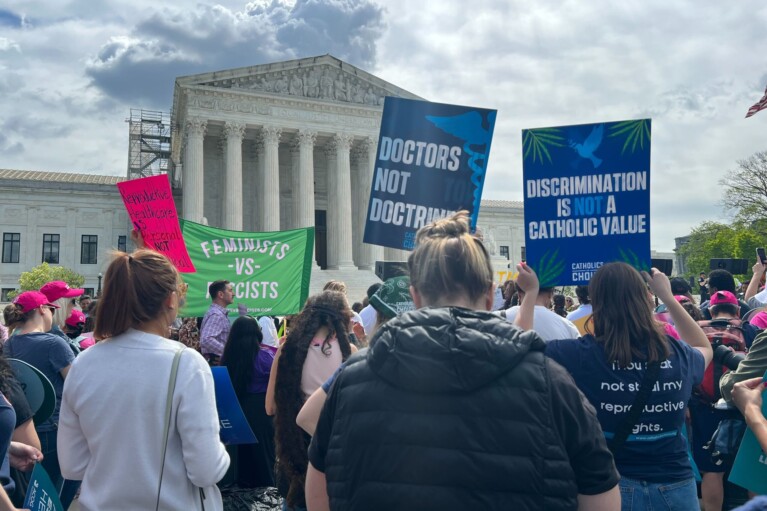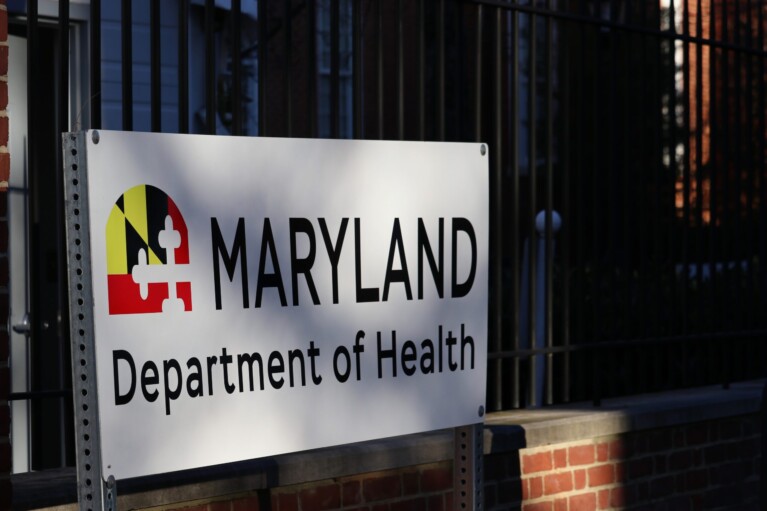Colorado Creates Maryland-Style Prescription Drug Price Containment Board, As Other States Consider Action

Colorado has become the third state in the nation — following trailblazer Maryland and Maine — to create a panel with the power to rein in prescription drug prices.
The measure signed by Gov. Jared Polis (D) on Wednesday creates a five-member Prescription Drug Affordability Board, which will evaluate whether medications are fairly priced. In cases where they are determined to be too costly, the board will have the authority to set maximum prices.
As in Maryland, where the legislature approved a drug-price board in 2019, Colorado lawmakers said they wanted to provide relief to consumers, many of whom must choose between medications their physicians have prescribed and other essentials, such as rent and food.
“Starting in 2023, Coloradans who purchase insurance on the individual or small group markets will have a new option that’s going to cost less and be high quality,” one of the bill’s sponsors, state Rep. Dylan Roberts, said after the bill signing, according to Colorado Newsline. “The high cost of health care leads too many people to have to choose between going to the doctor or paying for necessities.”
Colorado lawmakers and healthcare advocates consulted with Vincent DeMarco, head of the Maryland Citizens Health Initiative, and others involved in the creation of Maryland’s Prescription Drug Affordability Board, or PDAB.
DeMarco said he and his team shared advice on how to draft the legislation and how to build political support for the idea that states can and should take steps to provide relief to consumers.
“We met with advocates, legislators, the governor’s office, everybody,” he said.
“The key is to build a strong coalition behind it,” DeMarco added. “You need polling to show there’s public support for your proposal. You need real people to tell their stories, and strong advocates in the General Assembly. And you need an effective media campaign.”
He said the slogan that advocates of lower prescription prices used in Maryland — “drugs don’t work if people can’t afford them” — was adopted by advocates in Colorado.
Jane Horvath, an expert on health care financing who advised Maryland lawmakers two years ago, has consulted with legislators in nearly a dozen other states since, including in the Centennial State.
She said Colorado’s law is stronger than Maryland because it offers potential cost savings to consumers sooner.
Maryland’s law is more cumbersome in that it requires General Assembly leaders to sign-off on any recommendations the Prescription Drug Affordability Board makes. And the savings only apply to people enrolled in drug plans that cover county and state government employees.
“Colorado is a very robust bill,” she said. “They have authority to do statewide upper-payment limits right out of the gate.”
Maryland’s board has hired an executive director, but it will be at least another year before the panel has recommendations for the General Assembly to review.
A dozen states are reportedly considering Maryland-style prescription drug pricing panels, including Virginia, where gubernatorial hopeful Terry McAuliffe (D) has made it part of his platform.
Advocates hope that each state that adopts a PDAB law builds on the versions that preceded it. And they’re optimistic that Congress — where the pharmaceutical lobby has great clout — will eventually be forced to enact a drug-price law that covers the entire nation.
“It’s forcing [the drug industry lobby] to spend a lot of resources in a lot of places,” Horvath said. “They have to hire lobbyists all across the country and they hire all the lobbyists that are available in every state capital where this is happening.”
In pushing back against PDAB legislation, PHARMA, the industry’s influential lobbying organization, has argued that government shouldn’t be in the price-setting business.
They also maintain the pharmaceutical firms won’t be able to continue producing ground-breaking medications if they can’t recoup their costs.
With so many states now considering Maryland-style drug boards, former Congressman Jim Moran (D-Va.) said the industry would be wise to “get ahead of the curve” of the issue by supporting income-based subsidies to help people who can’t afford the drugs they’ve been prescribed.
“There are plenty of things Big Pharma can propose that will not hurt them economically,” he said. “But if they don’t do anything, they will pay a considerable price, both politically and economically.”




 Creative Commons Attribution
Creative Commons Attribution